Whose Side Are You On?
should we be taking sides on Palestine and Israel?
The comments on my last video included astute observations on why we shouldn’t ‘take sides’ on Palestine and Israel. In this short video, I make the case that the ‘sides’ are always empire and sovereignty. I believe that we need to think through what our own positions are because neutrality defaults to the side of empire—the one that pays your salary, owns your house, controls the media and funds both sides of this ‘war.’
Without individuals who look at issues within the context of principles rather than parties, the only side that will ever be represented is empire, in one form or another. Empire is power over others, sovereignty is power over yourself. Empire can only exist by taking away sovereignty; sovereignty can only exist by giving it to everyone else.
Thanks to Jimychanga for this meme of Anthony Bourdain. Based on Bourdain’s Palestine episode, he’s one of the people to whom I dedicated my book:
I define sovereignty as control over your own labor without taking that away from anyone else. To own your labor requires belonging to a community that has a right to its land and resources. There’s only one human right, which is sovereignty: over your mind, your body, your labor, your family, your community and its land and resources. That’s not what the empire wants (thanks, Ratio!):
To tackle one of the most complex issues of global justice, I consulted my daycare provider. She taught my kids the most important lessons in life, including ‘You are the most special person in the universe … and so is everyone else.’ She taught them how to hold onto their sleeves when they put on a sweater. And she taught them to share.
Perhaps the first declarative sentence uttered by a child is “Mine!” Questions of ownership in daycare, where kids bring toys from home, require skills of intergalactic diplomacy. Whose is the toy, the kid who brought it or the kid who’s playing with it now? The answer is, it doesn’t matter, as long as the rule is consistently applied. It can’t change depending on whether you brought it or you are the one playing with it.
Her solution, as I remember, was a hybrid—if the toy was new, fragile or brought for sharing time, it belonged to the kid who brought it. If the toy was ignored until someone else had it, it belonged to the one giving it attention. Can you see how this would apply to land rights? Do you understand why no one is qualified to govern until they’ve raised cooperative children? In an unusually serious meme for Ratio:
Tonic masculinity in a Norman Rockwell frame. How does this apply to Israel? Israel’s answer to the ownership question is that once you’ve beaten the kid up and wrested the toy away from them, it’s yours by right. Their modus operandi is that might makes right and the settlers should take as much as they can, because that will become part of Israel. Immediately and permanently. Unless someone else takes it by force.
Israel is hypocritical to complain about anyone taking land by violence when they’ve established the rule of force as the only one they honor. On Polarization, a presentation with Esther Perel and Yuval Harari, I wrote:
Over the last 10-15 years, Yuval points out, Israel has become so strong that they don’t need to compromise, they can just subdue because the disparity in power is so great. He then compares this to Russia’s invasion of Ukraine and quotes that ‘All wars end the same way … by people talking.’ But with Ukraine, ‘there needs to be fighting and victories on the battlefield because when someone’s as powerful as Russia, they don’t see a need to talk.’ …
If you take what he’s saying about Russia and apply the same logic to Israel, it seems that he’s saying Palestinians need to be more violent before Israel would ever see a need to talk. Essentially, he’s saying that there’s no moral imperative that will ever matter to them as long as might makes right.
Are you willing to accept this as the principle by which you’ll live, if someone invades your country, your community or your home and says, now this is mine? Would you say that was just, that was fair, let bygones be bygones? If that wouldn’t be okay with you, then you have already chosen a side. You’re just not applying it consistently.
How does this apply to those who’ve wrestled away the toy for centuries, races who’ve displaced the indigenous people of whole continents? The answer ‘they’ are giving is reparations in money, which makes other people your slaves, requiring reparations paid to them in the next generation. It replicates the problem.
My economic system prioritizes the sovereignty of people who live, work or were born in the community. But a creative way to enable those displaced to move back might be through property taxes. In my commonwealth, I thought about property tax breaks for those learning the language indigenous to the area.
That would make teachers of the native language sought after and able to make a living equal to the cost of housing. I also think there’s something special about the language that developed in a particular place, to describe nature, plants, geology and the human relationships of a people who stayed put. We’ve lost the perspective of sovereign languages and are left with languages of empire and power over others.
I will leave you with two examples of how indigenous people have solved this problem in the past:
In The Dawn of Everything, Davids Graeber & Wengrow tell the story of Kandiaronk, or the muskrat, the Wendat stateman who ran circles around European politicians. They also show why Jared Diamond and Yuval Noah Harari are unduly pessimistic about the ability of humans to invent and reinvent their own social structures. I add Chris Hedges to this doom and gloom trio and explain why blind obedience has it backwards. The three essential freedoms are listed, that every person NOT trained in obedience took for granted. My theory, that money has been 3500 years of obedience training, is expounded. I end with Kandiaronk’s view of money and the question from the Daves of 'when did we stop imagining that we could reinvent our social relations?'
In a recent essay on The Rings of Power, Charles Eisenstein differentiates between feminine power and 'honorary men.' The Dawn of Everything by anthropologist David Graeber and archeologist David Wengrow tells the creation epic of The League of Five Nations and the Jigonsaseh, or Mother of All Nations. As we enter our dark winter of the soul and look at the cult of immaturity in so-called leadership, they show us why we are orphaned by our culture and deprived of the feminine power of all of us.
Subscribe to Third Paradigm
By Tereza Coraggio · Launched 2 years ago
How to Dismantle the Empire through Global Economics, Geopolitics, Media & Propaganda, Spirituality, A Course in Miracles, Community Sovereignty

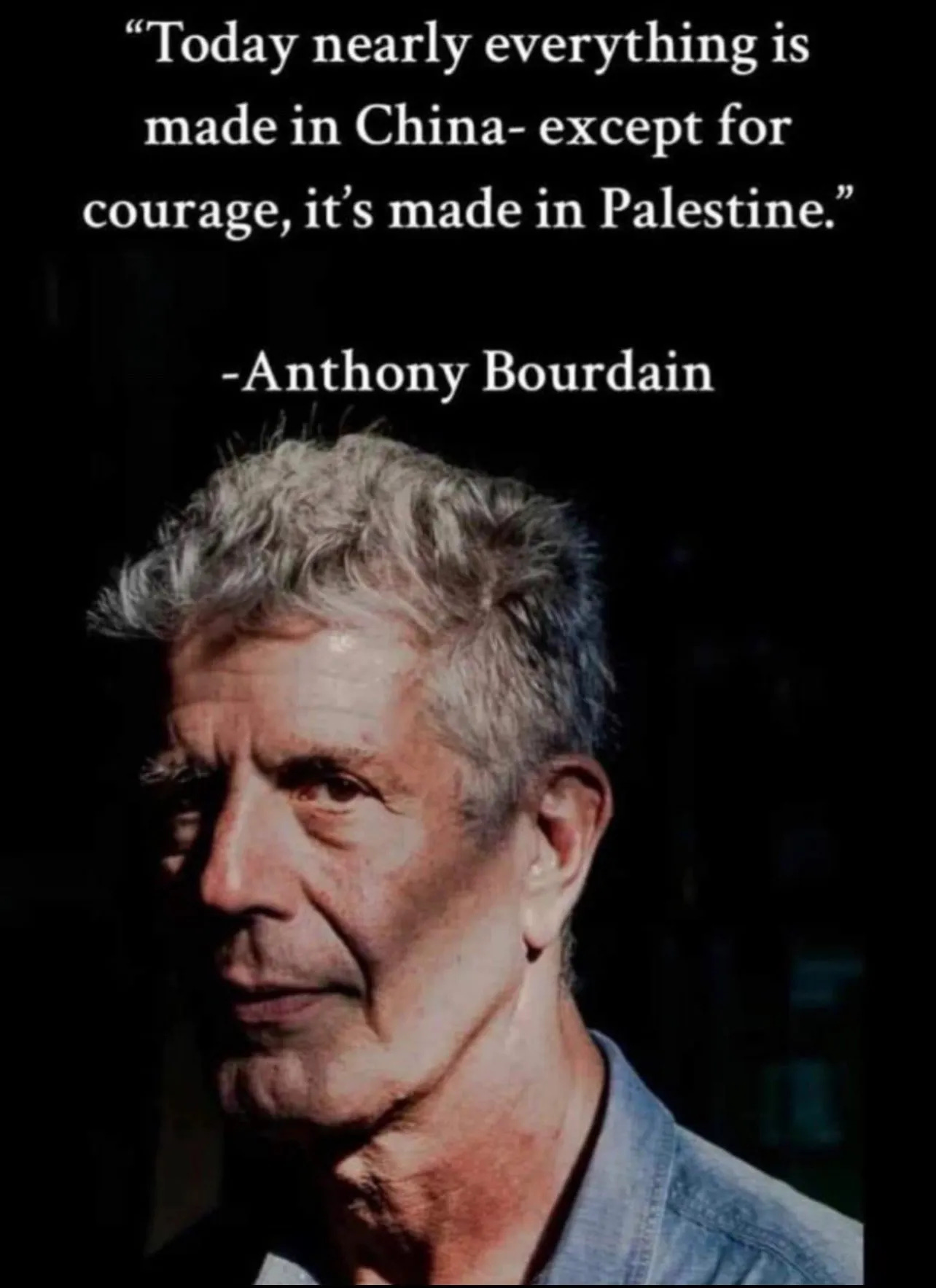
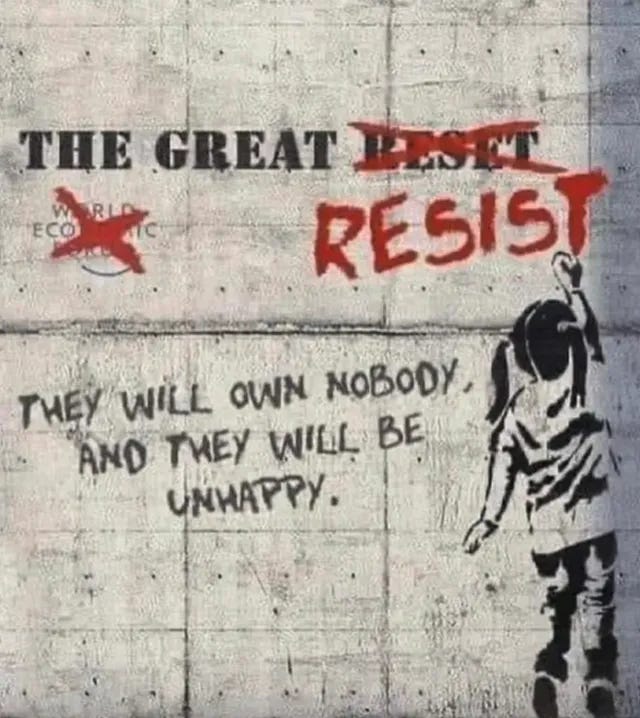
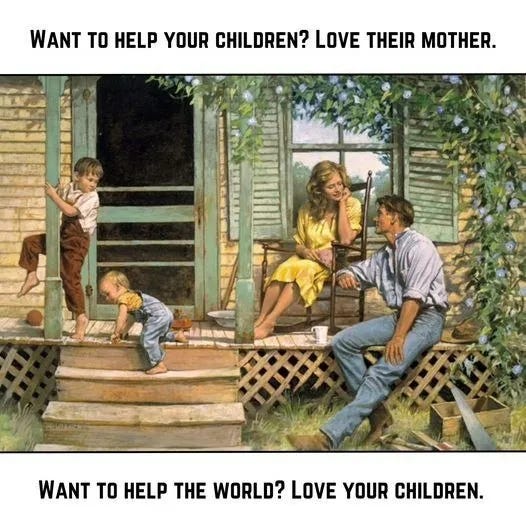
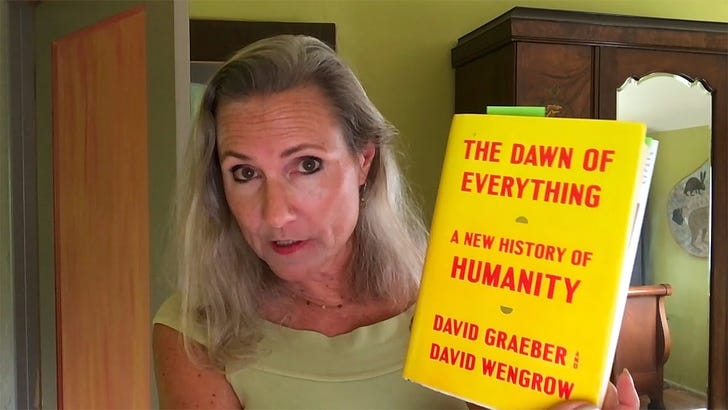
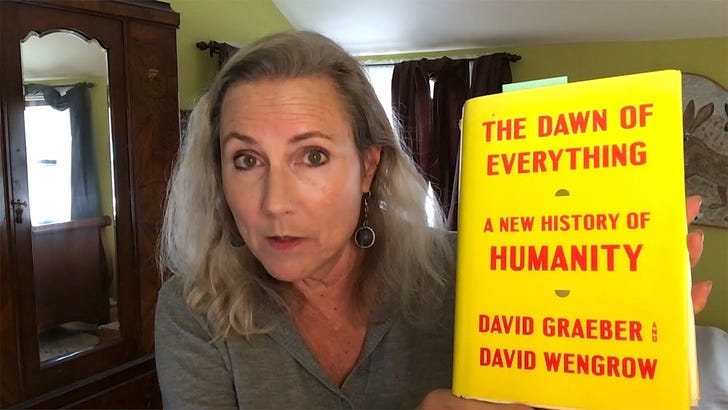

No comments:
Post a Comment